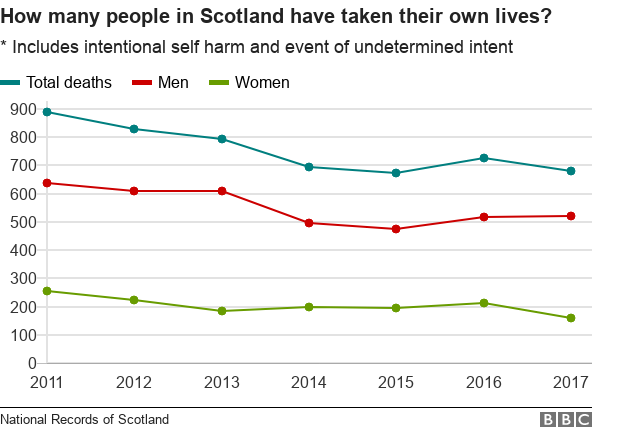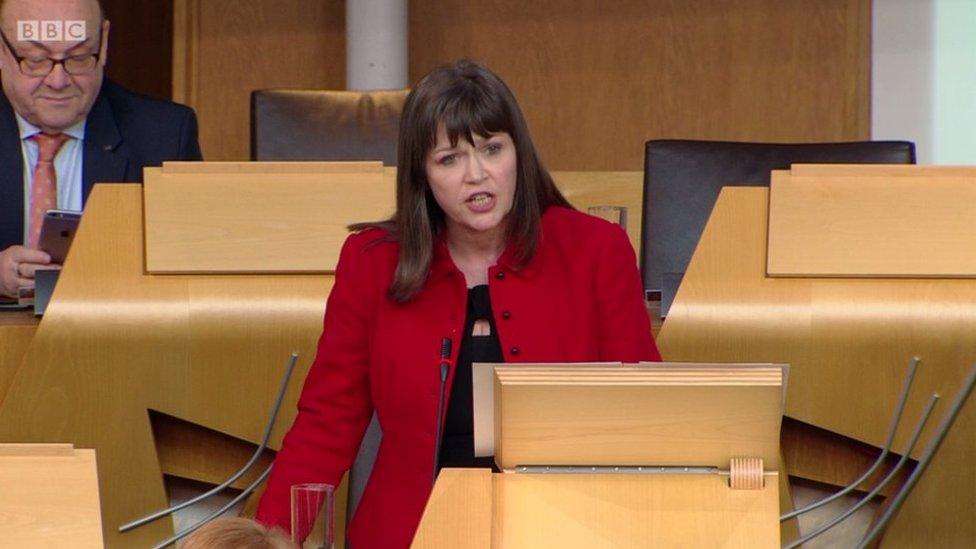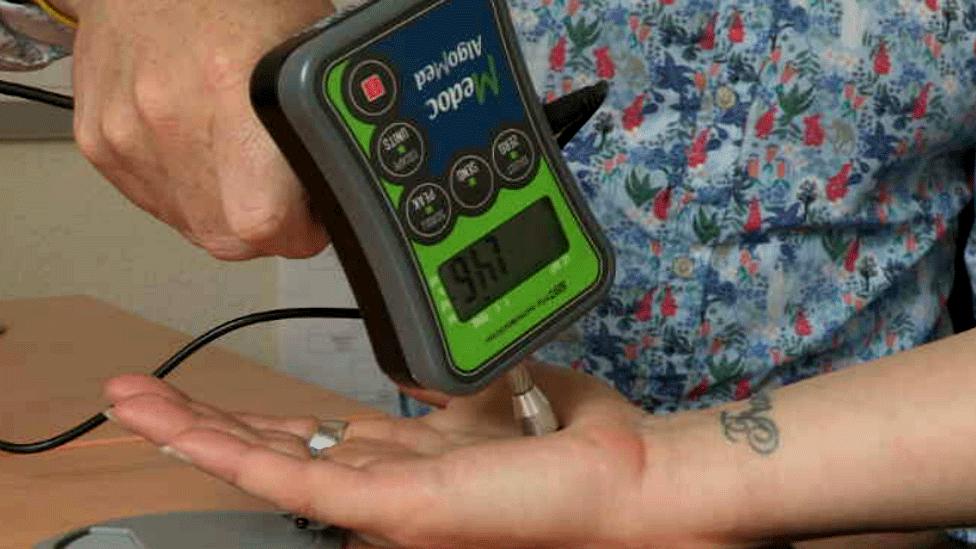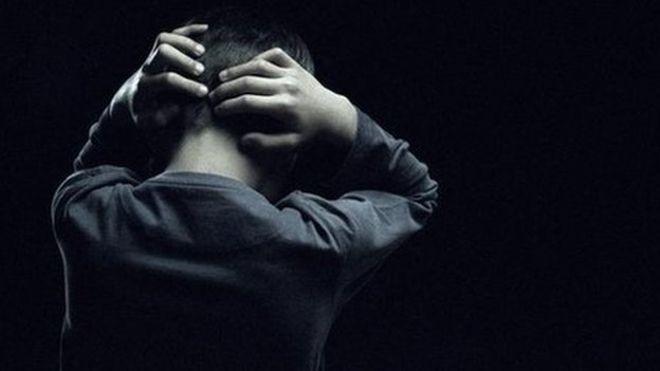Target to cut Scottish suicide rate by 20% by 2022
- Published
- comments
The parents who lost sons to suicide
The Scottish government has set a target of reducing the country's suicide rate by 20% by 2022.
Mental Health Minister Clare Haughey announced the target alongside a new suicide prevention action plan.
Suicide prevention charity Samaritans had claimed the Scottish government was not taking the issue seriously enough.
Ms Haughey insisted Scotland has "made real progress in reducing deaths by suicide", but said there was "far more to do" to tackle the issue.
The government is setting up a national suicide prevention leadership group, headed by former Police Scotland deputy chief Rose Fitzpatrick, to be backed by a £3m innovation fund.
A total of 680 people killed themselves in Scotland in 2017, a rate of 12.5 per 100,000. This is largely unchanged over the past four years, with an overall downward trend over recent years from a rate of 18 per 100,000 in 2002.
This represents a 20% reduction over 15 years, and ministers are now targeting a similar fall over the next four years.
Among the actions in the plan are:
refreshed mental health training for the public and private sectors, including for all NHS staff, by May 2019
reviews of all deaths by suicide so lessons can be learned
a new national suicide prevention leadership group, to be in place by September
development of innovative use of digital technology to prevent suicide
new public awareness campaigns

The government's last suicide prevention strategy expired in 2016, and opposition parties and health groups hit out at delays in drawing up a new one.
A draft plan was set out in March 2018, but also came under fire. James Jopling of Samaritans in Scotland told Holyrood's health committee that the group was "very disappointed" with the proposals at that stage, calling for ministers to "show more ambition".
There has been a warmer reception for the finalised plan however, with the Scottish Association of Mental Health (SAMH) saying it "shows commitment to making suicide prevention a national priority".
Chief executive Billy Watson said: "We have been encouraged by the decrease in the number of deaths by suicide in recent years, however, we cannot become complacent. When someone dies by suicide, it has an impact like no other."
Lee Knifton, head of Mental Health Foundation Scotland, also welcomed the plans, saying they "must now be turned into action".
He added: "No society should tolerate the suffering and despair that leads a person to take their own life. Now is the time to make Scotland a world-leader in suicide prevention."

Clare Haughey previously worked as a mental health nurse
Ms Haughey - herself a former mental health nurse - took over from Maureen Watt as mental health minister in June's reshuffle.
She said: "Every life matters and no death by suicide should be regarded as either acceptable or inevitable. Over the past decade, Scotland has made real progress in reducing deaths by suicide but we have far more to do.
"We want a Scotland where suicide is preventable, and where anyone contemplating suicide or who has lost a loved one gets the support they need."
Ms Fitzpatrick, who retired from Police Scotland earlier this year, said it was an "honour" to be asked to chair the new leadership group.
She added: "I am deeply aware of the significance and importance of the group's work, and confident that by working closely with a range of partners to take on the range of important actions in this national plan, we can all make a real difference."
- Published9 August 2018

- Published2 May 2018

- Published6 March 2017
